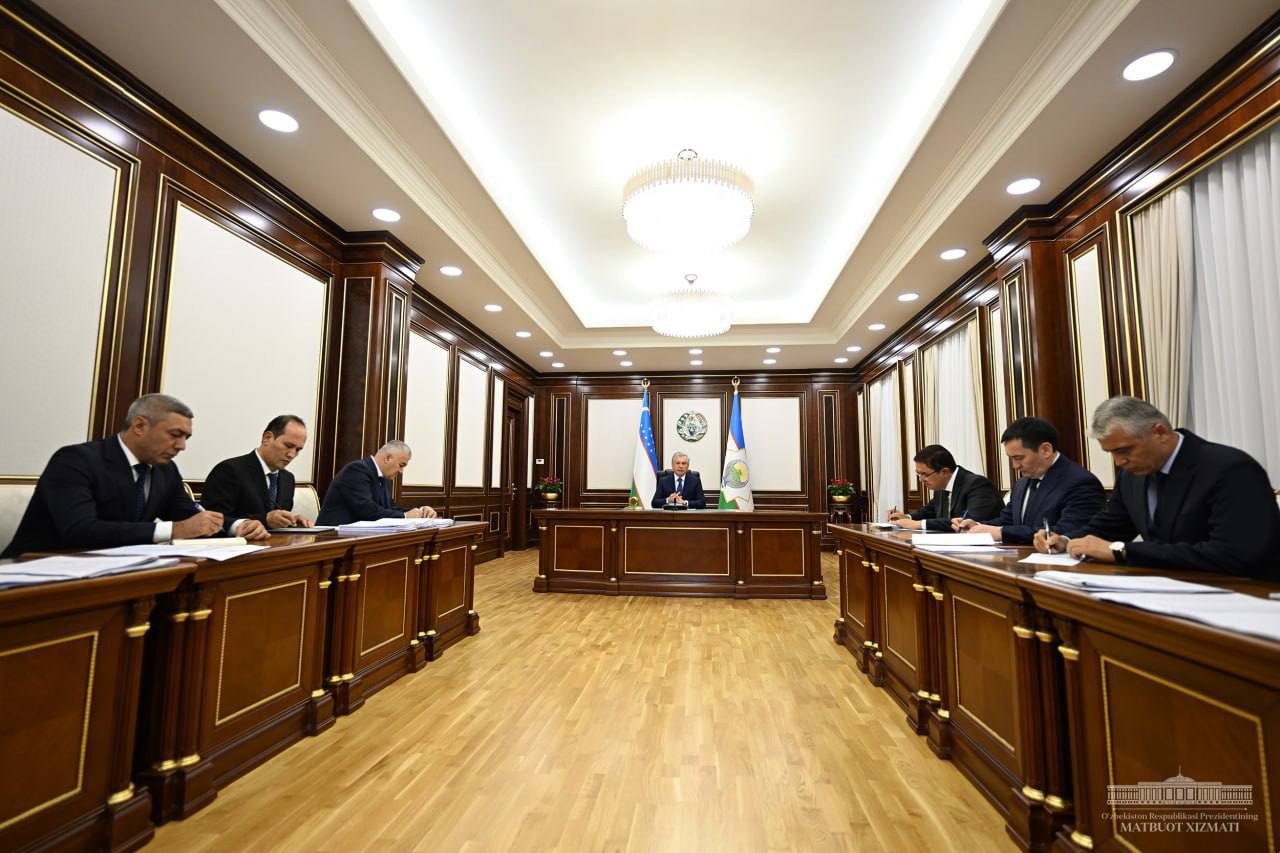Uzbekistan to cut down on direct state procurement and boost competition
President Shavkat Mirziyoyev today reviewed a presentation on measures aimed at promoting competition.

According to the press service of the president, the ongoing efforts to reduce state presence in the economy and curb large monopolies have had a positive impact on the competitive environment. Specifically, over the past five years, the competitive environment has improved for more than 25 goods. Exclusive rights that restricted competition in 7 types of activities have been abolished. The number of state-owned enterprises has decreased by 42 percent, while the number of private enterprises has increased by 1.6 times.
Last year, the "Competition Law" was adopted in a new edition. The Competition Development and Consumer Rights Protection Committee was granted additional effective powers. According to studies conducted on this basis, some organizations exhibit practices such as making anti-competitive decisions, entering into direct contracts, and using dominant positions in trade.
In response, a Competition Development Concept has been developed to expand the scope and improve the effectiveness of efforts in this area. This concept outlines further tasks to reduce state involvement in the economy, liberalize market access, and create equal conditions for entrepreneurs.
The plan includes the abolition of regulatory provisions and excessive requirements that hinder free market access for business entities. It provides for the introduction of relaxations aimed at reducing regulatory burdens, specifically replacing permit procedures and licenses with mandatory liability insurance.
Independent market regulators will be introduced in natural monopoly sectors. In commodity markets related to natural monopolies, where there is potential for competition, the participation of natural monopoly entities will be limited.
The scope of direct state procurement will be reduced, with all procurement being shifted to competitive methods. The provision of individual state assistance that restricts competition, including exclusive rights, benefits, preferences, and concessions, will be abolished.
Through the mutual integration of the information systems of government agencies, digital monitoring of all stages of pricing for socially significant products will be established. A system of non-disclosure and incentives for individuals providing information on anti-competitive agreements and actions will be implemented.
Overall, as a result of this concept's implementation, measures will be taken to gradually eliminate 17 types of state monopolies in areas such as energy, oil and gas sector, water management, road construction, railways, and airport services. Anti-competitive actions in state procurement will be curtailed, and transparency in these processes will be ensured. Offerings on commodity exchanges will be increased, expanding choices for buyers.
The president has given additional instructions to continue work in this area, ensure free market principles, and develop entrepreneurship. The need to reduce the state's share in the economy and gradually transfer specific functions to the private sector was highlighted. The task is to continually analyze the state of competition in commodity, financial, and digital markets and propose improvements to procedures.
Over the past three years, more than 2,000 acts contradicting competition law have been identified locally, mostly documents from local administrations and ministries. Consequently, the need to intensify the work of territorial offices of the Competition Development Committee and improve staff qualifications was noted.
The importance of increasing openness and strengthening efforts to highlight the committee's activities was also emphasized. It was underscored that this is crucial for preventing legal violations and creating a transparent environment.
Recommended
List of streets and intersections being repaired in Tashkent published
SOCIETY | 19:12 / 16.05.2024
Uzbekistan's flag flies high on Oceania's tallest volcano
SOCIETY | 17:54 / 15.05.2024
New tariffs to be introduced in Tashkent public transport
SOCIETY | 14:55 / 05.05.2023
Onix and Tracker cars withdrawn from sale
BUSINESS | 10:20 / 05.05.2023
Latest news
-
Chinese company eyes role in upgrading Uzbekistan's railway stations
BUSINESS | 12:20
-
SF Airlines launches cargo flights from Lanzhou to Tashkent
SOCIETY | 19:19 / 02.04.2025
-
Uzbekistan sees 20% increase in budget revenue in Q1 2025
SOCIETY | 19:17 / 02.04.2025
-
Namangan regional court judge releases repeat offender convicted of running a brothel
SOCIETY | 18:53 / 02.04.2025







